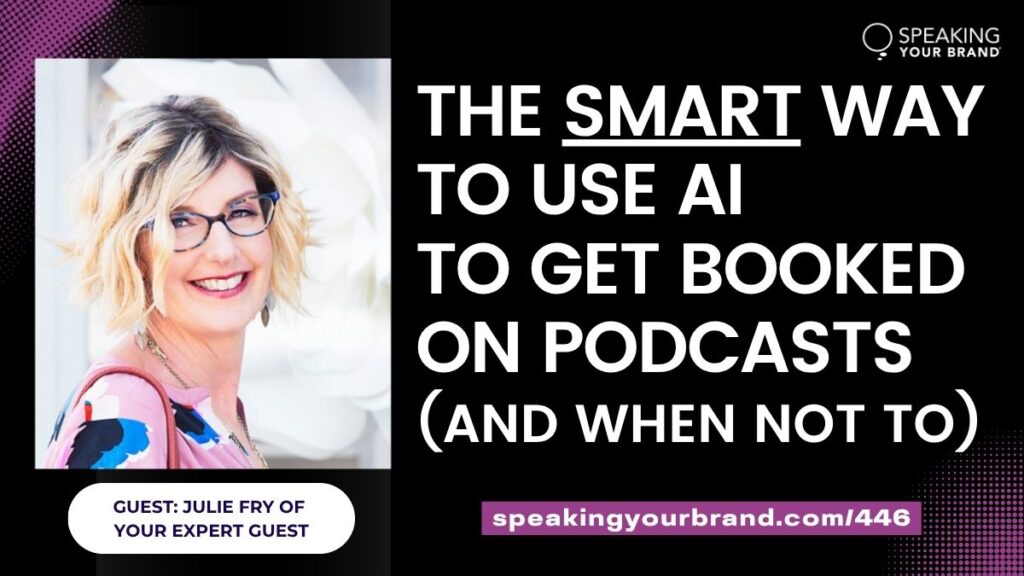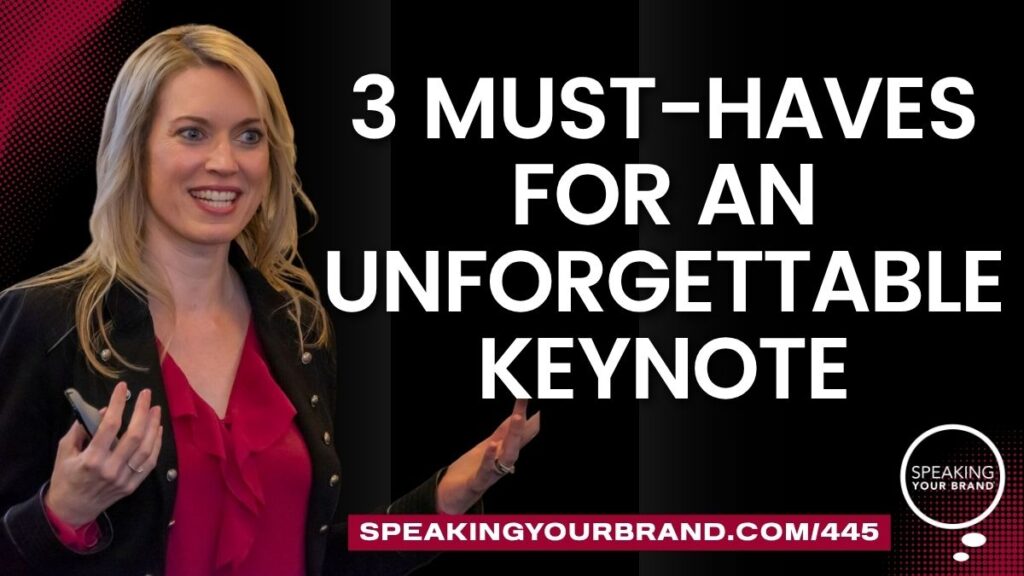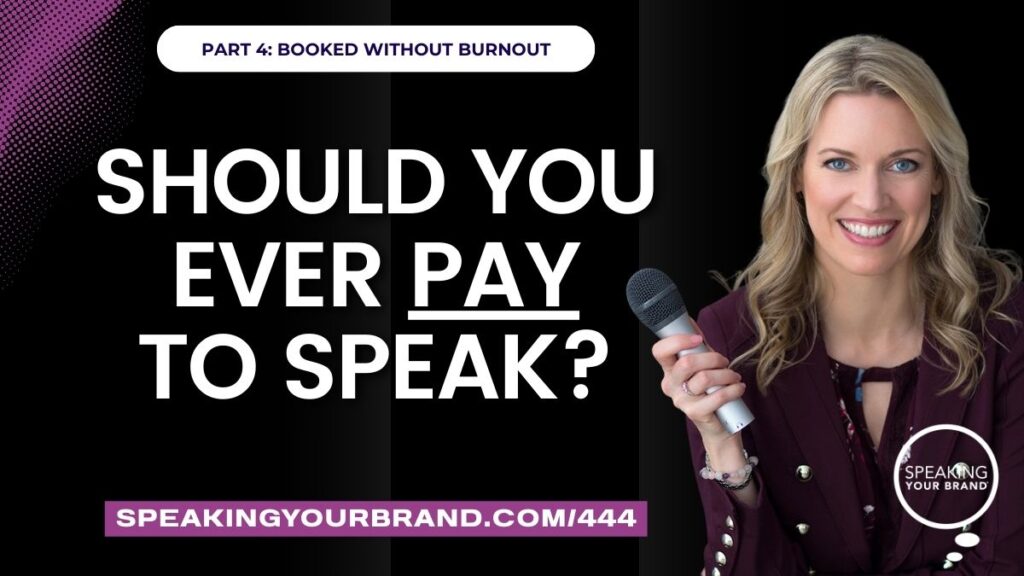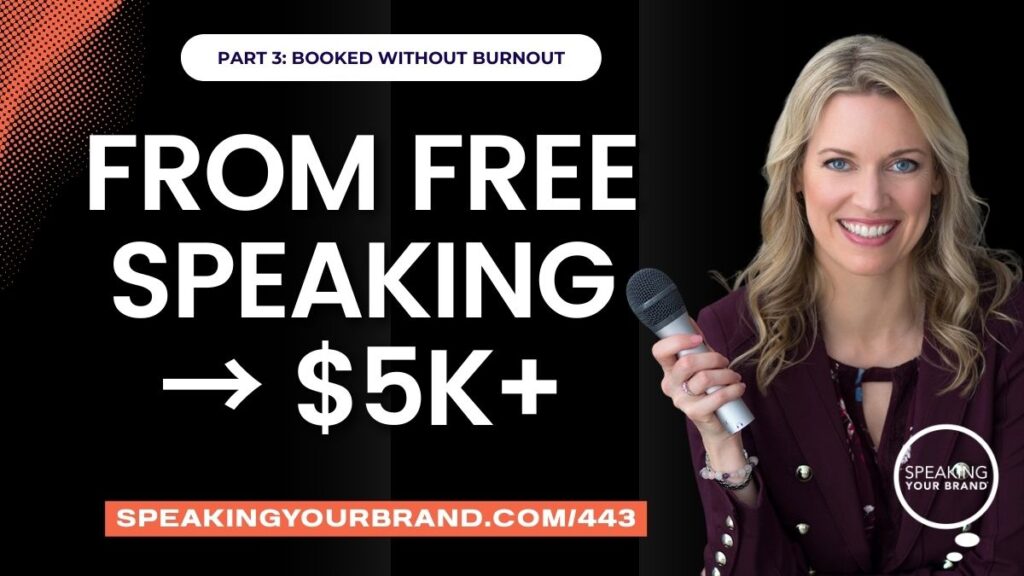361-SYB-Solo-TEDx-Talks.mp3: this mp3 audio file was automatically transcribed by Sonix with the best speech-to-text algorithms. This transcript may contain errors.
Carol Cox:
I’m sharing with you my insider tips on what you can start doing now to land a TEDx talk on this episode of the Speaking Your Brand podcast.
Carol Cox:
More and more women are making an impact by starting businesses, running for office and speaking up for what matters. With my background as a political analyst, entrepreneur, and speaker, I interview and coach purpose driven women to shape their brands, grow their companies, and become recognized as influencers in their field. This is speaking your brand, your place to learn how to persuasively communicate your message to your audience.
Carol Cox:
Hi there and welcome to the Speaking Your Brand podcast. I’m your host, Carol Cox. Do you have given a Ted talk on your list of goals? I talk to a lot of women, and so many of them tell me that this is what they want to do, and many speakers do want to give a Ted talk, and for good reason. These ten minute talks are such a powerful way to share a message and give the audience a way to think about a topic or an idea differently. Also, you know that being a Ted speaker is a credibility marker and an opportunity to get seen by more people. So how exactly do you land a Ted talk? What should you include in your application? What are event organizers looking for? How do you shape your idea? That’s where we’re going to cover in today’s episode. I’ve worked with Ted events to select speakers, and I’ve coached Ted speakers, so I’m giving you an inside look on how you can increase your chances of getting selected and of course, deliver an outstanding talk. And I’m going to share with you towards the end what I’ve seen is the number one most effective way to get selected.
Carol Cox:
If you’re new to the podcast, welcome here is Speaking your brand. We work with women entrepreneurs, executives, and leaders to craft their brand story and signature talk and develop their thought leadership platform because we want to see many, many more women, especially diverse women on stages in the media, on boards, in politics and in business. If you haven’t yet, I highly recommend taking our free speaker archetype quiz. It only takes a few minutes. It’s ten multiple choice questions, and then you’re going to get your results, which is going to show you which of the four speaker archetypes you are that I’ve identified. Hundreds of women have taken this quiz, and it’s so helpful because it points out what your natural communication and speaking strengths are, so you can double down on those. And I also give you recommendations for things to start doing that you may not have thought of already, including a recommended podcast episodes to listen to specifically for your archetype. You can take that quiz again. It’s entirely free as speaking your brand.com/quiz. Again, that’s speaking your brand.com/quiz. Now let’s get on with the show.
Carol Cox:
The most successful Ted talks have a combination of these elements in them. First, the speaker’s expertise. So why are they standing on their stage? What is their background, their bio, their credentials on the topic that they’re talking about? So they need to have a certain level of expertise or experience in it, but they can’t stop there. The next element they need is that big idea, and we’re going to talk about that in just a moment. The third element is they need to tie in their personal story. So their personal experiences, their personal journey that got them interested in the idea, shaped the way they look at their particular topic, or somehow change their mental model or cause a paradigm shift in how they were thinking about this idea, and by extension, then how the audience can think about it as well. So let’s take a look at crafting your idea. Ted talks, of course, are famously known for having an idea worth spreading. What is an idea worth spreading? Well, an idea worth spreading is not a typical presentation on where you’re going to share five tips and tactics related to what you do. Those are fine for webinars that you do, or maybe some conference breakout sessions, but for a Ted talk, you really need to present the audience with something new and surprising. So an idea or an invention or research that your audience has never heard about. So that could be one bucket that you could be in.
Carol Cox:
Now, if you are a researcher or a scientist or an inventor, that could very well be what the core of your talk is about. For most of us, though, that we probably don’t fall into that bucket. So then we fall into the second bucket, was that you’re presenting in your talk a great basic idea that your audience has probably already heard about. They’re probably somewhat familiar with whatever your concept is that you’re describing, but you’re going to give them a compelling new argument behind it that challenges their beliefs and perspectives already. Now, of course, when you’re challenging their beliefs and perspectives, you have to do it in a way that takes the audience on a journey of discovery. Much like much like you had discovered this new perspective as well. So as you start thinking about what your idea could be, of course think about what is your area of expertise, what is it that you do, and then what does it make sense? Or what seems obvious that everyone else is ignoring? So you think about your topic, your industry, the things that you do. What have you always thought? Well, I don’t know why people do it that way, or I used to do it that way. But then something happened and I shifted the way that I thought about it. And so now I do it this way. Or now I think about it this way instead.
Carol Cox:
And when you tell people your idea, you want their response to be why? Or tell me more, so you want to provoke curiosity with your idea. Now, back a few weeks ago in episode 354 of this podcast, I talked about finding and developing your big idea. An idea. Idea is an acronym. You want your idea to be interesting. So that unique angle that provokes curiosity, you want it to be debatable and defensible. So other people may have ideas that are in your same umbrella topic, but you have a different perspective on it. And it’s okay that everyone agrees with you because you need to be able to defend it with your examples, experiences, research data, etcetera. E is for empowering the idea helps people to see something in a different way for a positive benefit. An A is for actionable. People can do something with it. They can learn it and apply it to themselves and build upon it. Because as a thought leader, you want people to take your idea and spread it further. Of course, that is the beauty of these ten minute, 12 minute Ted talks is that there’s very accessible for people to watch and then to share. So of course, we know very well known Ted speakers like Brene Brown and Simon Sinek. Really, their Ted talks built their careers, propelled their careers because of the power of that. And we think about some of the clients that I’ve worked with, like Tammy Lalli and her talk on money.
Carol Cox:
Shame. That’s been viewed over 2 million times now on the TED.com website. Dr. Christina Madison, who talked about the importance of public health messengers looking like the communities that they come from. We also worked with the University of California faculty back earlier this summer on helping them craft their Ted style talks that they delivered at an event. So this is very much what our wheelhouse, what we do when we work with you in our Thought Leader Academy is we’re helping you craft your big idea, and then we’re helping you take that big idea and putting it into a signature talk that you then can present in different formats and to different audiences, including how to repurpose it into a Ted talk. So that’s how to start thinking about crafting your idea. What can what provokes curiosity? What is that unique angle or perspective that you can offer on the umbrella topic that you’re talking about? The next thing, of course, is you need to start finding some Ted chapters and then figuring out which of them have are active and which of them have events. Coming up. The two places that I go to to search one is that at the TED.com website you can go to TED.com, slash Ted slash events, and I’ll put a link to that in the show notes. You can go there and they have a map of the world, and then you can zoom in and drill down to a specific state or a specific region of a state.
Carol Cox:
And then there’s little indicators on the map that show you where the chapters are. Now some of the chapters are active, some of them are dormant. So you have to then click on each of the little dots and see what information is available for them. Once you find the Ted chapters, then you also want to search on Google for them, because a lot of times these Ted chapters have their own websites as well, where they post their events, speakers, information about what they’re doing, and so on. So in addition to clicking on the little map indicators on the TED.com page, you also can just search on Google for names of cities and then the word Ted. So what happens is that the parent organization, TED.com, they license Ted to different event organizers around the country and around the world. But they’re all have they all have to be geographically located. That’s why they’re called TEDx Orlando, Ted Boston, Ted Reno, Ted University of Wherever. So they always are are geographically located for the chapter. So that’s why I say search on Google for names of cities and then the word Ted and see what comes up. So once you start collecting a list of different Ted chapters, then see if that chapter has an upcoming event or a recent past one.
Carol Cox:
So you can kind of tell if a chapter is active or not. If they’ve had an event, say, within the past year, then they’re probably are active or obviously they have an event listed that is coming up. So what you want to do once you find their website, sign up for their email newsletter if they offer one, because that way most likely they’re going to send information as they start planning their next event. And as they start opening up a call for speakers, follow that chapter on social media. I generally recommend that you start finding Ted chapters that are local to you so, you know, within driving distance, because number one, it’s just going to be easier for you to apply there. And then you have some type of local connection to the chapter. But of course, then if also then look for chapters elsewhere that you have some type of connection to. Maybe you went to school at a university and they have an active Ted chapter. Maybe you used to live in a different city and they have an active chapter, or you or your hometown where you grew up, has an active chapter. So start locally, but then start thinking about other locations that you have associations with. So those are my the first two suggestions. And the third thing to do would be if if once you’ve listed all of those is then start looking for chapters that have some type of connection to your topic.
Carol Cox:
So some Ted chapters are very focused on, say, medicine and health. Some Ted chapters are very focused on education. So then you can start kind of drilling down into there. And again, Google Search is your friend here to kind of try to find what these different chapters are. Once you’ve made a list of these different chapters that are the ones that seem like the best fit for you, start building relationships with those Ted organizers on social media. Find their LinkedIn, especially if they have one, and then connect with them there. Attend one of their events. If they have an event coming up and it’s too late for you to submit to speak, go ahead and attend that event and then introduce yourself. Obviously, let them know how great the event is and how you’re interested in potentially speaking at a future one that they have. Even better offer to volunteer for that upcoming event. Ted chapters are all volunteer run. No one gets paid for them, so they’re always looking for volunteers who can help them out. So offer to volunteer, because what you want to do is you want to become a familiar name and face to those event organizers, because when your application comes through, then you’re not someone that they’ve never heard of before. They’re you’re someone that they’re already familiar with. I’m going to give you one more tip about what else to do to increase your likelihood of getting selected, but first, let me talk about what to include in your application.
Carol Cox:
Every Ted chapter has their own application form, but generally these are the questions that are going to be on them phrased one way or another. So they’re going to ask you, what is your idea worth spreading? And generally they want that answered in one sentence, maybe two sentences. So very very short. What is your idea worth spreading. And then usually the next question is they’ll ask you to elaborate on your idea. Maybe they’ll give you a paragraph or two paragraphs to do that. So so not a lot of space but a little bit more. Sometimes they’ll ask, what will your audience take away from your talk? Or how how will they see the world differently after you speak? They may also ask, what is your connection to that particular city or that particular university, that particular location? So again, that’s why I always say start with your geographic area or locations where you have some type of connection to. Sometimes TEDx events have a particular. Theme, the TEDx events where I was selecting speakers for, and that I worked with the TEDx speakers on. Those events all had a theme, so we needed to make sure that the speakers talks somehow connected to the theme. Now, I can usually find some type of connection to whatever the theme is with whatever your topic is, but you do want to try to find a way to relate it, because sometimes they will ask you that question on the application.
Carol Cox:
And also sometimes you’ll see on their website when they’re talking about the event that they have coming up, they may mention a theme, and if they don’t, it just could be that they haven’t selected one or they’re just not going to use a theme at all. The other thing that you may see on the applications is asking to submit any relevant photos or videos or links, so maybe they want links to media profiles where you’re talking about your expertise or your background or something related to the topic. Videos are also really good. Sometimes they’ll ask you just to record an off the cuff video. So they want it very casual, informal. You just they want it recorded with your phone, just to maybe talk a little bit more about your idea and submit that sometimes they will ask for links to videos of you speaking. Now, if you need to get professional video, you can come to our three day in-person retreat that we’re holding at the end of February in Orlando, Florida. Because not only do you get all the practice time on our stage and our coaching and feedback and a lot of fun, on day three, you get professional filming and a professionally edited video to use for your speaker reel that you can put on your website, YouTube, social media and so on.
Carol Cox:
So definitely check that out at Speaking your brand.com/retreat. Now, I have talked to a lot of Ted speakers over the years. Sometimes they get selected with the very first Ted event that they’ve ever applied to. Sometimes they get selected after they’re applying to five, ten, 20, even 30 or 40 or 50 different events. So number one, talk about perseverance. Number two, know that just because you don’t get selected for a particular event, it is not necessarily a reflection of you as a speaker or your idea. It could be that that particular chapter already had a speaker on a on a similar kind of topic of yours at their last event, and they just don’t want to repeat that topic. Or maybe they have another speaker for that same event where, again, your topics are kind of similar, and for whatever reason, they’ve already selected that first speaker. It could be that your talk topic just does not fit with the theme that they’re going for. Plus, event organizers like to curate their roster of speakers, so they want to make sure that kind of that they have a variety of speaking styles, a variety of people who are on the stage and a variety of topics. So it’s okay if you don’t get selected. Just keep applying to the different events that you can find, because eventually you’re going to be a great fit and you want to be selected by an event where they know that you’re going to be a great fit for the event that they’re putting on.
Carol Cox:
Now, I’ve been mentioning that there is a way to increase the likelihood to get selected at a TEDx event, and that is to get known in your local community. And one of the best ways for that to happen is to be a speaker at local events and groups, because these Ted event organizers, they’re active in the local community as well, and they go to a lot of events and, and group meetings. And so they’re seeing speakers all of the time. And I know from having selected Ted speakers and talking to a lot of event organizers that as they’re out in the community seeing different speakers and meeting different people, they kind of keep a roster either in their mind or maybe even on a on a document somewhere of who they think is interesting and who could potentially be a great speaker for their next Ted event. I always recommend that even if you primarily speak at industry conferences and associations, so not so much in your local community. If you want to do a Ted talk, I highly recommend starting to do some speaking in your local community because that’s going to get you on the radar not only of Ted event organizers, but also other event organizers in your area. If you would like to work with us to identify and develop your big idea, to validate it, to build the confidence, to put it out there, to create your signature talk.
Carol Cox:
That’s exactly what we do. And our thought leader Academy. Here’s what a recent graduate said. She said, I joined the Thought Leader Academy because I had too many ideas swirling in my head, and I knew I needed outside expertise and guidance to help me organize my thoughts and create a cohesive narrative and signature talk. Now I have so much more clarity on my core message and my thought leadership, and I have a cohesive signature talk and an actual strategy for how to bring that talk to my audience. So when we work with you in the Thought Leader Academy, you get a one on one virtual VIP day where we are working with you to map out your talk from beginning to end using our framework. And you. Also get weekly group calls because there’s so much power in being with a community of women. You also get our Speaking Your Brand Resource library, which are on demand videos with different lessons as well as worksheets and templates. It truly is a comprehensive program to take you from an expert presenter to a thought leader, and potentially a TEDx speaker. You can get all of the information at speaking your brand.com/academy. Again, that’s speaking your brand.com/academy. Be sure to let me know once you grace a TEDx stage, because I would love to cheer you on. Until next time, thanks for listening.
Sonix has many features that you’d love including enterprise-grade admin tools, share transcripts, automated subtitles, world-class support, and easily transcribe your Zoom meetings. Try Sonix for free today.

![SYB-361-Carol-Cox-1200x630 How to Land a TEDx Talk [Thought Leadership Series]](https://www.speakingyourbrand.com/wp-content/uploads/2023/12/SYB-361-Carol-Cox-1200x630-1-1024x538.jpg)





